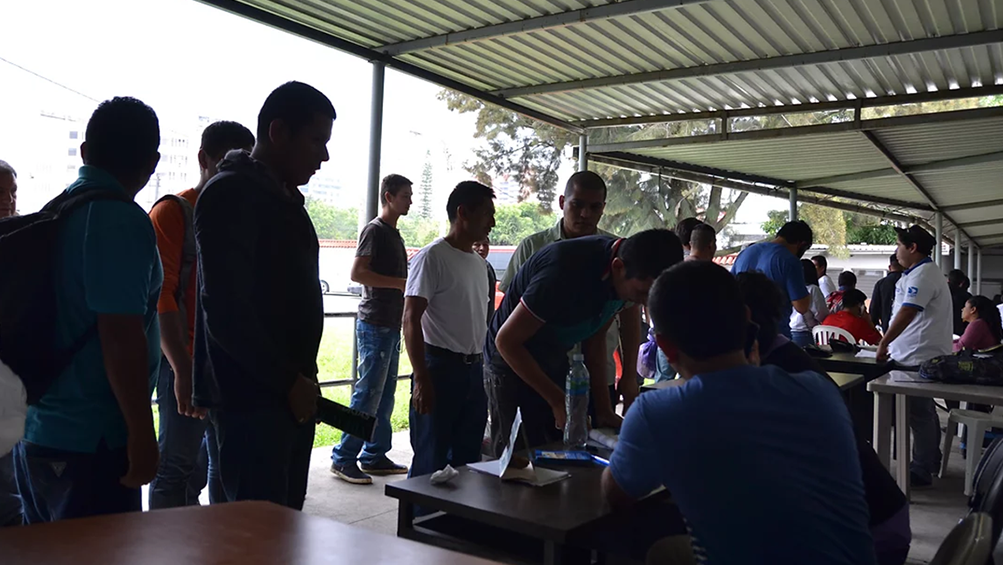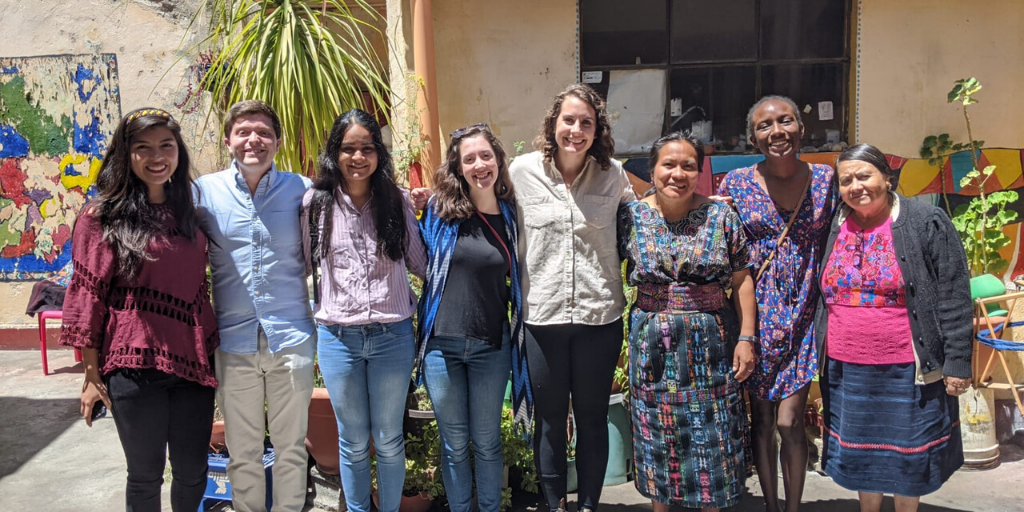Understanding the Experiences of Migrants Sent Back to Guatemala
November 19, 2021

By Lukengu Tshiteya ’22
Each year, Guatemala receives the second highest number of people deported from the U.S., after Mexico. Landing in Guatemala City, most deportees are left stranded, often thousands of miles from their hometowns in Honduras, El Salvador or Nicaragua. Little is known about the process of deportation and the lived experiences of these people.
The Bass Connections Migration and Deportation project team addressed this gap by examining the deportation crisis from the perspectives of recent deportees and migrant communities in Guatemala City and North Carolina. The team was led by Duke professors Erica Field, Jay Pearson and Erik Wibbels along with Pamela Lattimore of RTI International.

Public policy major Arya Patel ’22 joined the team to gain a holistic perspective on the migration process and to understand the human impact of deportation. “We focused not only on the migrants coming to the U.S., but also the process of getting deported back to Guatemala and what that looks like,” she said. The team also focused on labor issues, specifically the working condition of migrants in North Carolina, and the available avenues for deportees to reintegrate into society when returned to Guatemala.
The team employed large-scale surveying of recent deportees from the U.S. to Guatemala City, with the help of the DevLab@Duke, to understand the challenges these people face. Upon arriving, deportees face a flurry of adverse circumstances. Most are without resources, far from home and stricken by the precarity of their situation. Many try again to migrate to the U.S. and borrow large sums to pay smugglers, which Patel described as creating a “vicious cycle of debt.”
The team’s surveys also revealed how deportation impacts safety and mental health. Women and children are especially vulnerable to abuse and exploitation in detention centers and in Guatemala. The Office of Refugee Resettlement reported over 4,500 allegations of sexual abuse and harassment between 2015 and 2018. Moreover, most incidences of sexual abuse are severely underreported.
Team members traveled to Guatemala to meet with community organizations and government officials, and to put their survey findings into context. Patel described the trip as “helpful to truly understand the socioeconomic conditions of rural communities in Guatemala and see directly what recent deportees face on the ground when reintegrating into society.”
Speaking with community members helped the team understand the social effects of deportation and several complex and socially-relevant factors of family members who are ‘left behind’ during migration. ”If you’re away from your family and children for years, just sending back money, their lifestyle has evolved and is very different from when you left,” Patel noted.
Conversations with local activists and indigenous communities revealed the increasing prominence of the movement “Derecho de no Migrar,” the right to not migrate.

“Many factors are pushing them to [migrate],” Patel noted. “It’s a difficult decision, [often] the very last choice for them. Each person has individual reasons that drive them. Seeing migration caricatures in American media, such as a caravan or a massive external force coming north, is not a great way to understand the complexities and humanity of migration,” she added.
After finalizing the research process, the team members communicated their findings in a series of academic reports and op-eds:
- Biden Wants to Halt Deportations. Here’s What Happens When Migrants Are Sent Back.
- 4 Things the Biden Administration Should Pay Attention to With the Border Crisis
- New Survey Highlights the Unique Challenges That Guatemalan Deportees Face with Economic Integration Back Home
They also collaborated with the makers of the film “Five Years North,” a documentary about a young Guatemalan migrant in New York, to create an audience viewing guide explaining the film's historical context as well as the economic and social factors that contribute to migration.
Patel is hopeful for more progressive immigration policy and change in society’s perception of immigration. “The best solution is to have a more clear, safe, and transparent system,” she said. “Working with countries that are sources of migrant workers and their leaders will hopefully spark structural change.”
Duke University senior Lukengu Tshiteya is a Bass Connections communications assistant majoring in Public Policy. Lukengu loves making music and creating outlandish hypothetical scenarios.
Learn More
- View the team profile.
- Read a reflection from fellow team member Maria Ramirez.
- Browse the Bass Connections 2020-2021 Annual Report.
